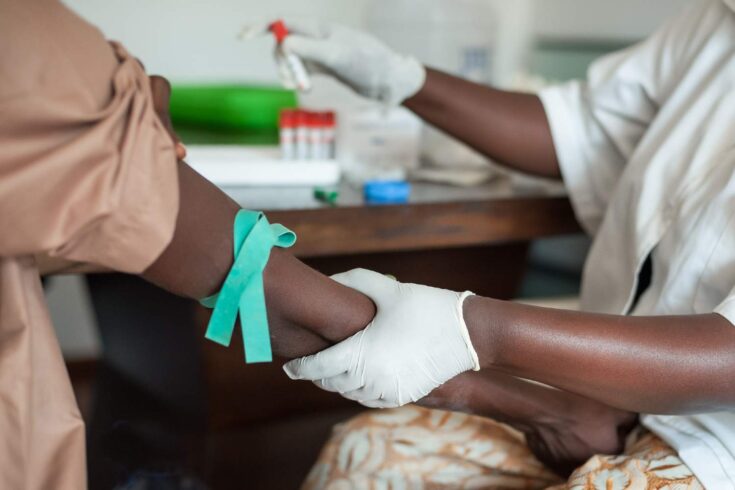In Africa, women are disproportionately affected by human immunodeficiency virus (HIV) and acquired immune deficiency syndrome (AIDS), with rates up to 15 times higher among incarcerated individuals than in the general community.
This reality underscores the urgent need for targeted research, policy advocacy and global partnerships to work towards sustainable solutions.
Exploring health challenges in prisons
Details of this approach in action, as delivered by a team at Liverpool John Moores University since 2017 are outlined in the Research Excellence Framework Impact case study database.
It charts an interdisciplinary team’s research and advocacy journey from design to influencing the UNAIDS Global Strategy 2021 to 2026.
Funded jointly by the Arts and Humanities Research Council and the Medical Research Council, this project explored the challenges of maintaining menstrual and maternal health in prison settings. It’s where the risk of onwards transmission is exacerbated by conditions for a doubly vulnerable population.
Building on observed clinical interventions and practice reviews conducted as part of a United Nations led evaluation of conditions, lead researcher Dr Marie Claire Van Hout wrote guidance for the World Health Organization. The guidance focused on how to reduce mother to baby transmission in this setting.
Read Dr Van Hout’s guidance (PDF, 2.2MB).
Empowering change: addressing HIV transmission in prisons
By the end of 2025, an estimated 40 million people worldwide will be living with HIV.
Africa remains at the epicentre of this epidemic, with about two-thirds of all people with HIV living there.
Despite this, seven out of the nine countries that have met the ambitious goals set by UNAIDS are in Africa.
These goals include ensuring that 95% of people living with HIV:
- know their status
- receive treatment
- have their virus under control
Improving access to better healthcare
Dr Van Hout’s work with the University of Zimbabwe and the University of Malawi has made significant strides:
- in preventing mothers from passing HIV to their babies in prisons
- increasing access to health and hygiene materials for women and girls in prison
The project’s policy impact has been translated into access to better healthcare for those who need it most. For example, officials in Malawi increasing the national healthcare budget to specifically cater for menstrual hygiene materials for women and girls in prisons.
Menstrual hygiene in prisons
Before 2019, prisons relied on non-governmental organisations and faith-based organisations to supply menstrual hygiene materials for women and girls.
However, the Malawi Prison Service’s health budget was increased by 30 million Malawian kwacha (£27,832) in the 2019 and 2020 national budget. This happened after evidence from Dr Van Hout’s 2018 to 2019 BioMed Central paper and The Mai Chisamba talkshow in Zimbabwe were presented in Malawi’s Parliament.
This increase aimed to provide menstrual dignity kits for at least 300 women and girls in prisons.
These changes reduce the spread of diseases like HIV in prisons by providing dignified sanitary products during menstruation.
Zimbabwean prison and policy reform advocate, Rebecca Chisamba, said:
Women have a different lifestyle compared to men, they need privacy and the environment they are in infringes this right.
Impacts
Health and rights improvement
Immediately enhanced health standards and sexual health rights in a selection of prisons.
Policy changes
Encouraged reforms in policies and practices regarding the sexual and reproductive health rights of women in prison, on a multi-national scale.
Capacity building
Boosted research capabilities for better monitoring and evidence-based practices in Sub-Saharan African prisons.
Networking
Brokered equitable partnerships between various organisations to address HIV and COVID-19 in prisons, focusing on women and minorities.
Supporting global public health
Dr Van Hout’s research uses evaluations, studies, and audits to highlight the health problems and neglect of women’s health needs in prisons.
This research provided the evidence and insights needed to support the global fight against HIV and AIDS.
This exemplifies the power of interdisciplinary research to support public policy, on the global stage, while improving lives in real-time.
Over time and across regions, small advances informed by lived experiences and on-the-ground realities, accumulate to play a crucial role, in driving life-altering progress through the application of research and development knowledge to real-world challenges.

